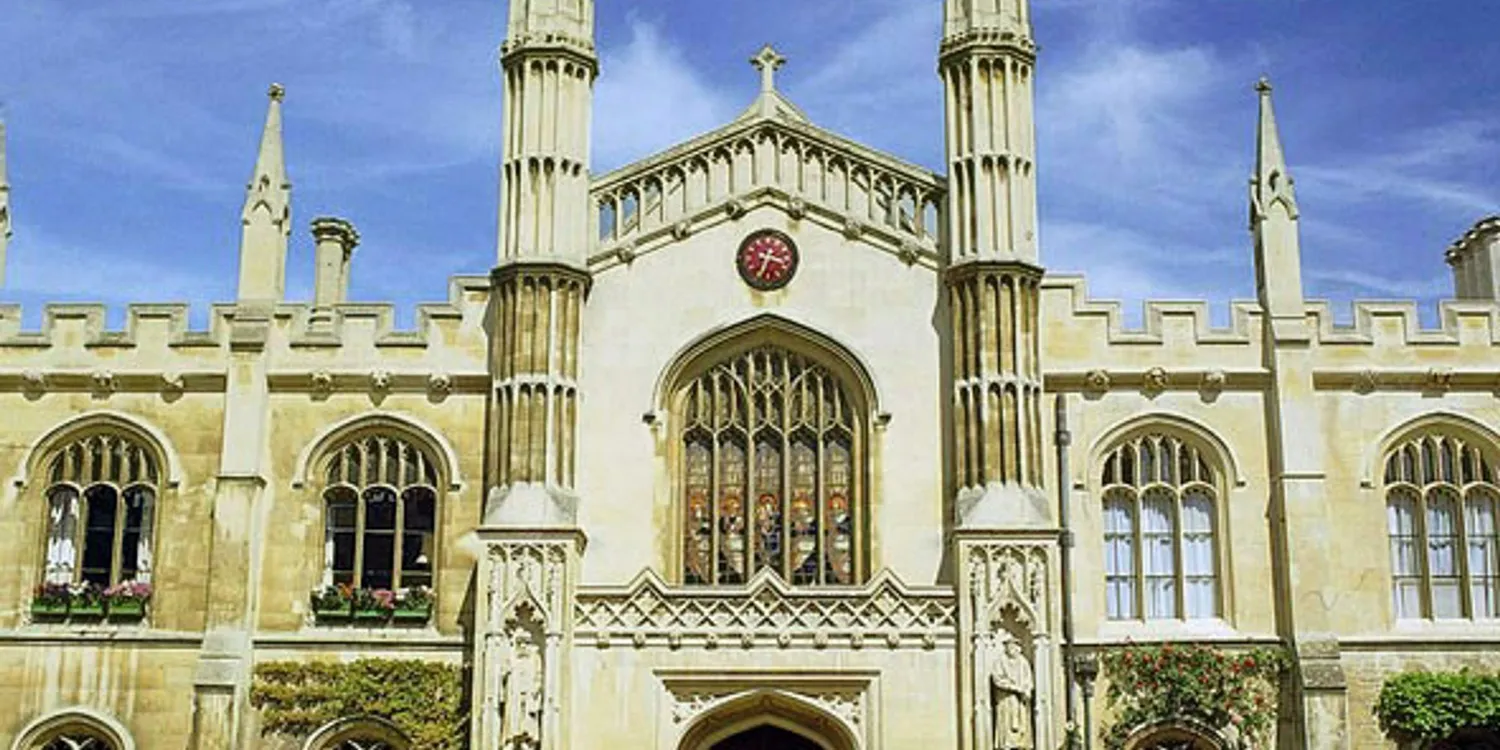Corpus Christi College was founded in 1352, which makes it the 6th oldest College in Cambridge and it is also the 2nd smallest. It was established by the townspeople of Cambridge; Corpus Christi retains the distinction of being the only Oxbridge college that was not founded by royalty, nobility, or the Church. The College is located right in the heart of Cambridge. Apart from the academic achievements of its staff and students – who include the great Renaissance playwright, Christopher Marlowe (who lends his name to one of the hotel's suites) – is famed for its beautiful architecture, clock, and ghosts.
The Corpus Clock is one of the most distinctive public monuments in Cambridge since its inauguration in 2008. It is an unusual device for the measurement of time being both hypnotically beautiful and deeply disturbing.
The face of the clock is plated in pure gold and the radiating ripples allude to the Big Bang, the central impact that formed the universe and could be considered as the beginning of time. Sitting atop the clock is an extraordinary monster: the ‘Chronophage’, meaning ‘time-eater’, for that is what the Chronophage does, devouring each minute as it passes with a snap of its jaws. It evolves out of a grasshopper, a term used by eighteenth-century horologist John Harrison to describe his invention of an escapement which was a strictly functional innovation.
The Corpus Clock has no hands or digital numbers and thus at first it appears difficult to tell the time. However, look carefully and there are 3 rings of LEDs, which reading from the innermost ring show hours, minutes and seconds. When an hour is struck there is no chiming of bells, but rather the shaking of chains and a hammer hitting a wooden coffin. Time passes and we all die, a fact further represented by the Latin inscription underneath the clock, mundus transit et concupiscentia eius, meaning 'the world and its desires pass away'.
| ← | Move left |
| → | Move right |
| ↑ | Move up |
| ↓ | Move down |
| + | Zoom in |
| - | Zoom out |
| Home | Jump left by 75% |
| End | Jump right by 75% |
| Page Up | Jump up by 75% |
| Page Down | Jump down by 75% |

